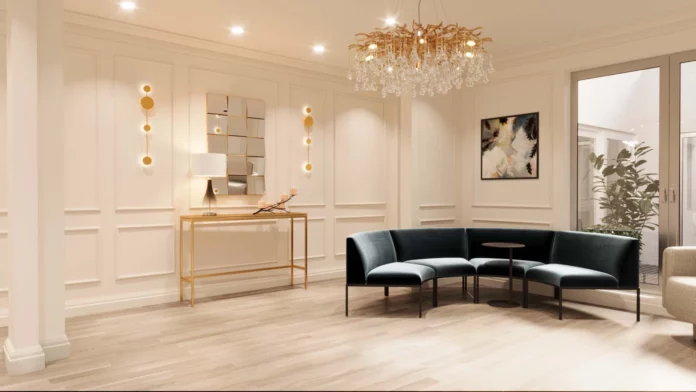A local dentists’ practice is hoping to reveal some of the Georgian splendour of its building as it expands to create more space for patients.
Moody Terrace Dental Practice, at 17, Moody Street, is sited in the heart of the Moody Street Conservation Area, which focuses on the medieval heart of Congleton town centre, as well as the more distinguished residences on Moody Street.
Moody Hall itself was built in 1777 for the Reade family, who owned a silk mill, and the three-storey houses on Moody Street were possibly built on top of older, medieval structures.
Dr Adam Noble, director of clinical services at the practice, told the “Chronicle”: “We love our beautiful Georgian townhouse but we have run out of space and we know that the building we have called our home for 75 years needs some renovation work to keep it functioning at its best, so we can serve our patients and deliver outstanding dentistry for the future.
“Being a grade two listed building is a blessing and a curse at times, but after careful and sympathetic planning, being guided by planners, conservation officers, architects and Georgian enthusiasts, we have been granted planning permission to renovate and extend our practice.”
Most of the street, and specifically 13-23, Moody Street, are listed buildings and it has taken two years to get the planning permission agreed, with bodies as diverse as the Georgian Group and Council for British Archaeology commenting on the application.
Dr Noble said currently that “every corner” of the building had been used to house new equipment, technology, and new staff.
Planning approval means that the redevelopment will be starting before the end of the year and will include a new, “state of the art”, larger ground floor surgery that is more accessible, and the practice will also be providing ground floor toilet facilities, a new waiting room and a welcoming reception area.
Dr Noble said the work would also include bringing out the historic features of the building.
“A huge a number of traditional Georgian features will re-emerge as we sympathetically restore our much-loved building,” he told the “Chronicle”.
For example, the work will include the removal of cupboards and office space to reveal the original wall.
Dr Noble said the main work was a building around the courtyard garden. The courtyard will bring both natural light and allow plants to grow within the surgery, providing a more tranquil and quiet environment. Two non-clinical rooms will also be created, allowing private spaces in which patients can discuss any concerns about their dental health, or any proposed treatments, away from the busier waiting or reception areas.
Added Dr Noble: “We anticipate a five-month timeframe for all works to be completed, which means that some of our current patients might never see the work in progress and only see the end result.”
The practice will remain open for business throughout.

 Agency by William Gibson
Agency by William Gibson 



